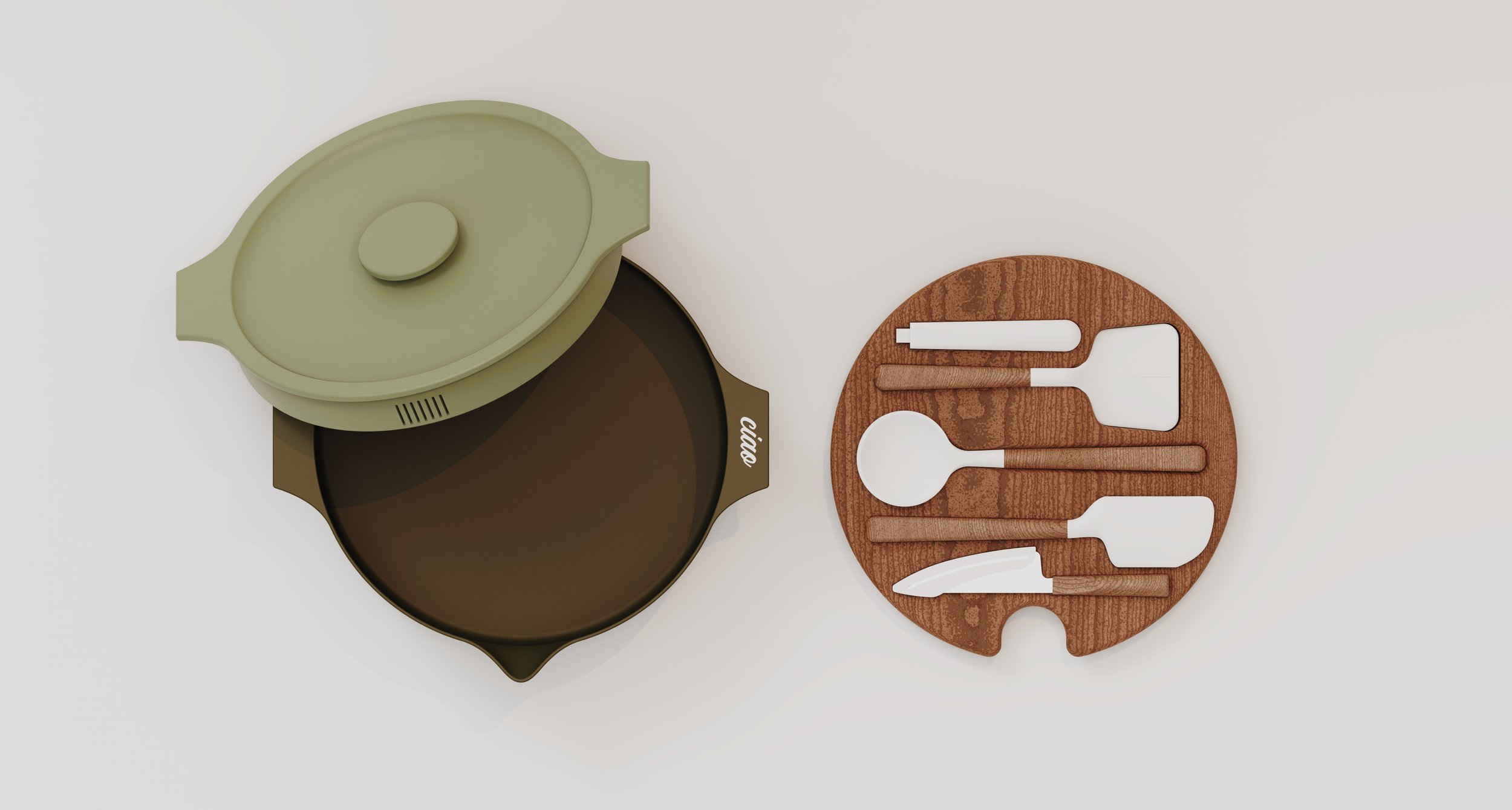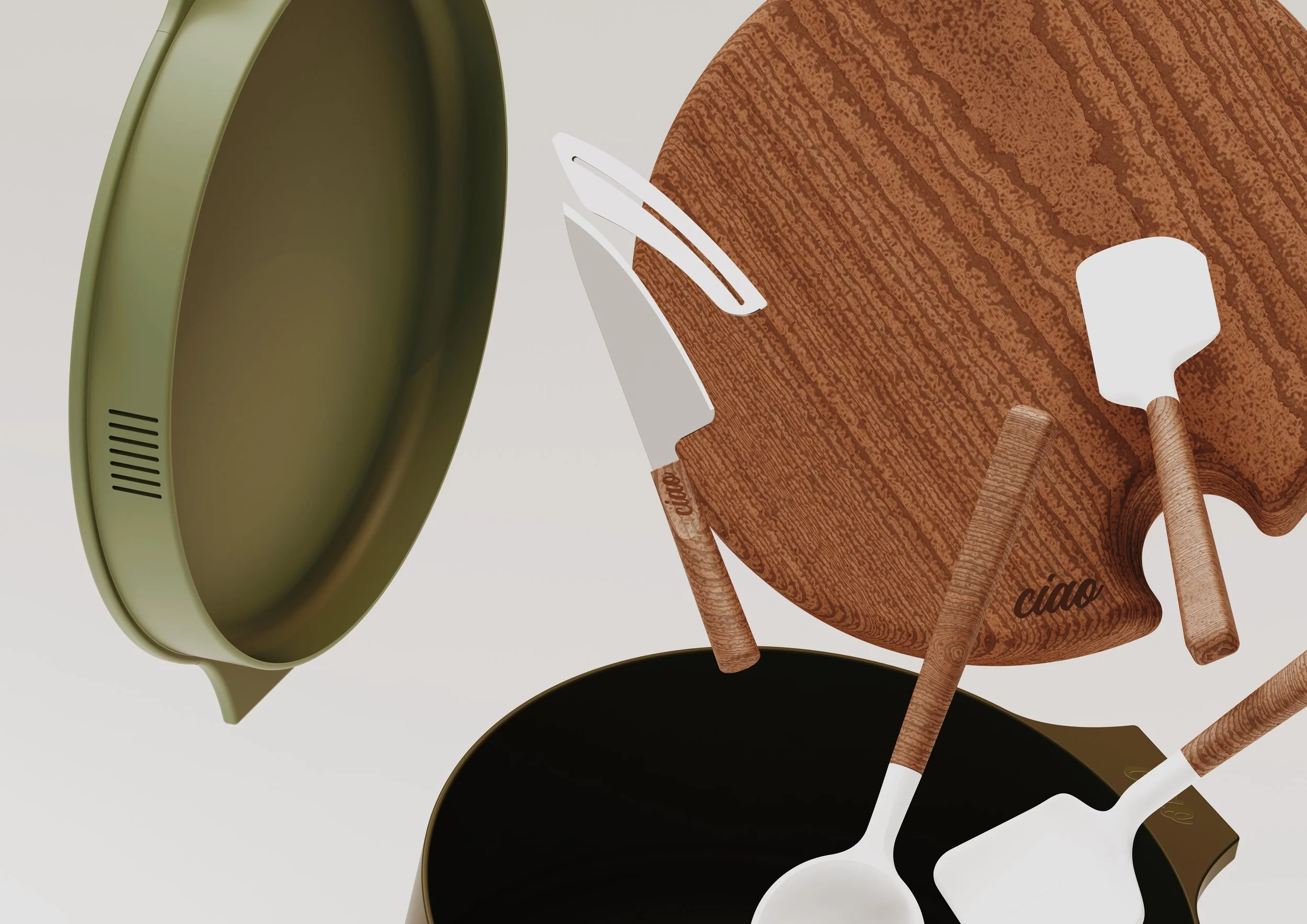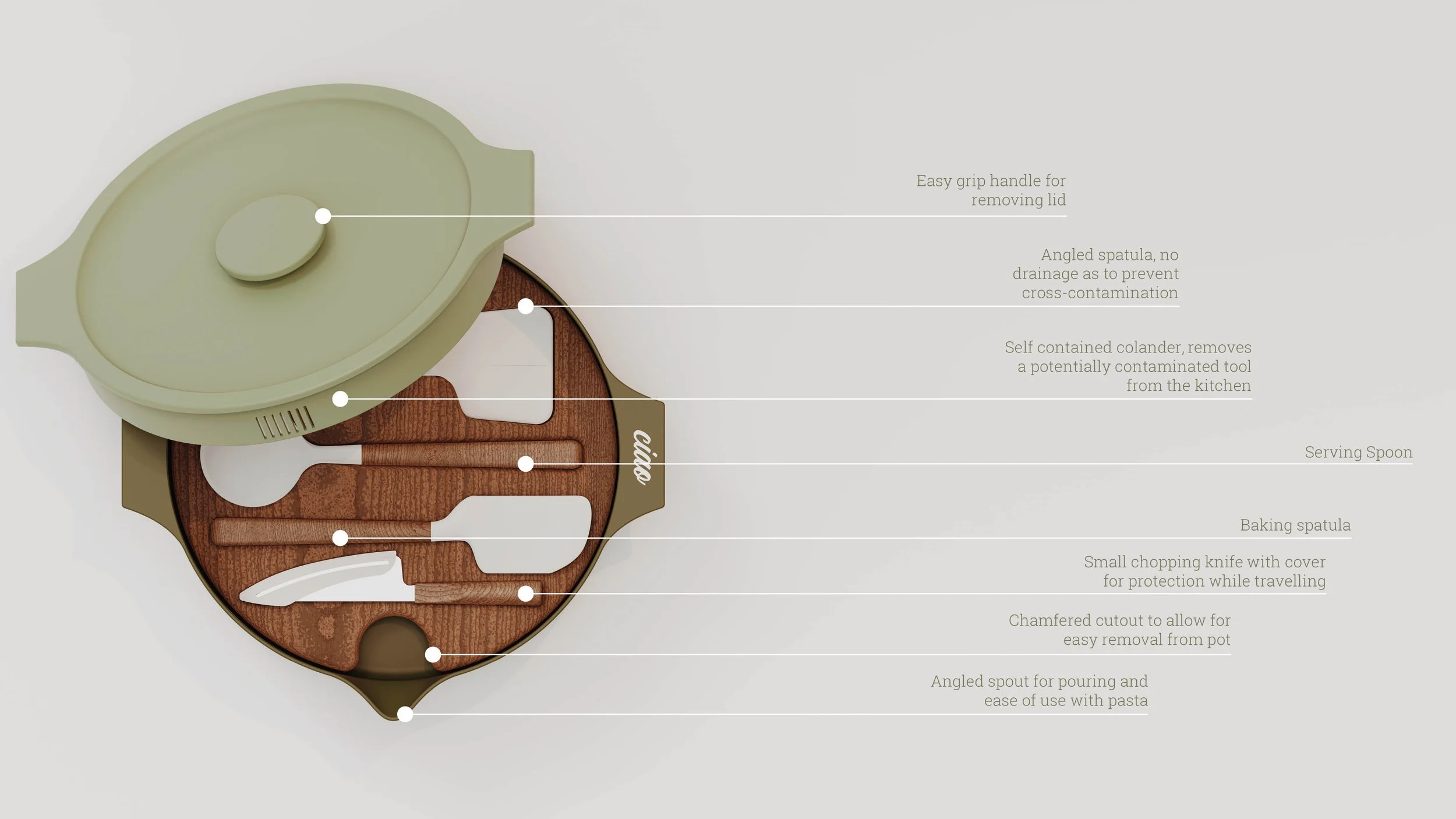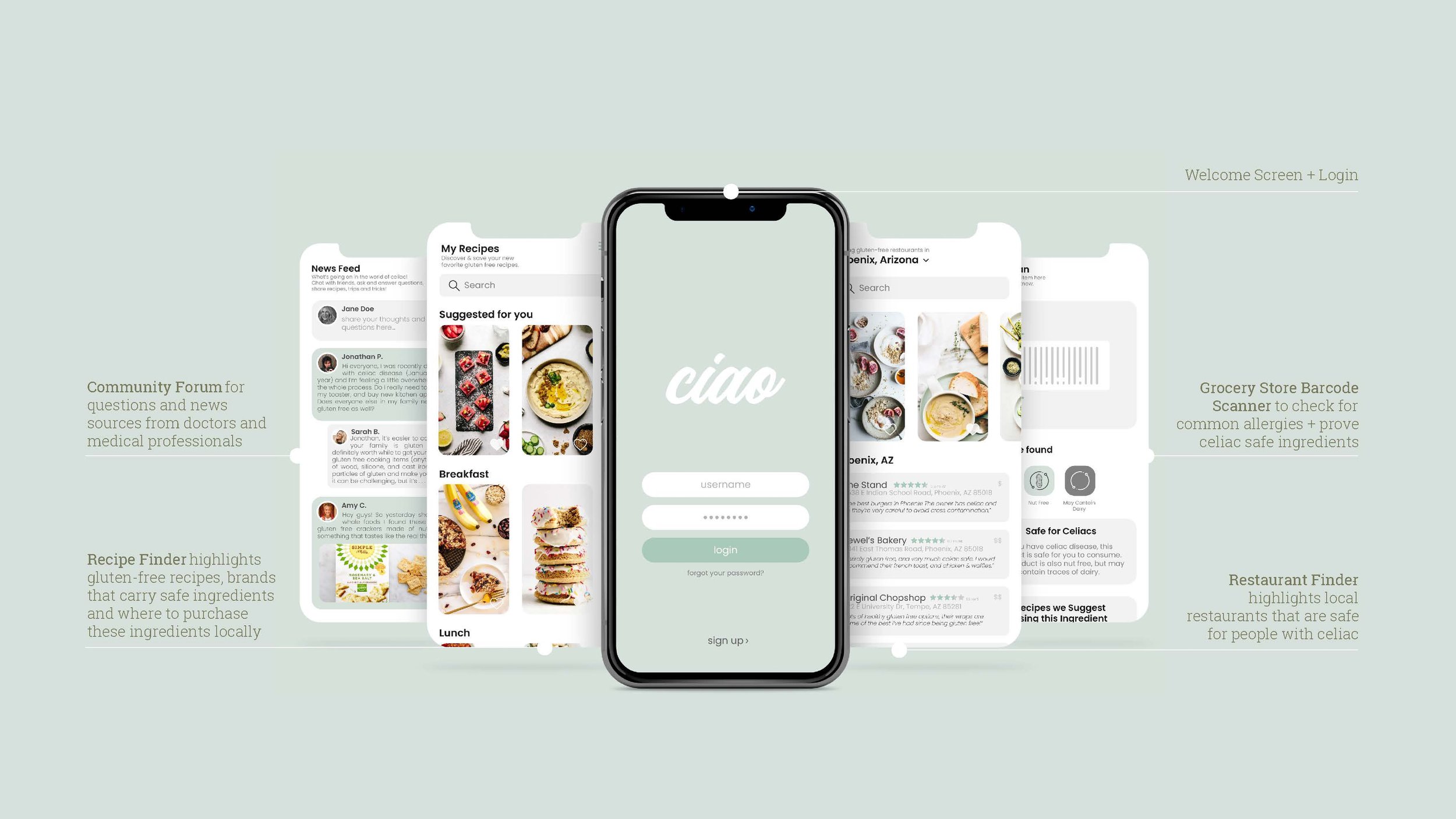Ciao: A compact cooking kit aimed at making daily life, travel and community events easier for people with celiac disease.
Case Study 01
Client: Self Directed
Year: 2020
Role: Lead Industrial Designer
Patients with celiac disease often go undiagnosed, and if they do get a diagnosis, they are often left to their health without much medical guidance. It can be difficult to navigate a new life change, especially one that affects your diet, social life, and the way that you experience the world around you. Many patients experience limitations when it comes to community events, dining out, travelling and shared kitchen spaces.
Celiac Disease
“Celiac disease, sometimes called celiac sprue or gluten-sensitive enteropathy, is an immune reaction to eating gluten, a protein found in wheat, barley, and rye.
If you have celiac disease, eating gluten triggers an immune response in your small intestine. Over time, this reaction damages your small intestine’s lining and prevents it from absorbing some nutrients (malabsorption). The intestinal damage often causes diarrhea, fatigue, weight loss, bloating and anemia, and can lead to serious complications."
- Mayo Clinic
Key Learnings
-
Since gluten is a protein that often serves as a binder for many foods, it’s fairly sticky and can contaminate cookware for life. Silicone, nonstick, and wooden cookware becomes dangerous for a person with celiac disease once it has been used with gluten containing ingredients.
Most patients contacted were not aware of the risk this presented to their health, and thus did not replace their equipment once diagnosed.
-
While not fully necessary to maintain a safe gluten free diet, having a fully gluten free kitchen significantly reduces the likelihood of cross contamination.
Many respondents identified with having children, a partner or roommate who consumed gluten in their home. Having a shared kitchen space requires a lot of education and awareness to maintain a safe space for a patient with celiac disease.
-
The diagnosis rate is very slow and challenging for many people, once they are diagnosed most doctors do not provide the support and direction needed for patients to feel empowered moving forward.
-
The diagnosis of celiac disease can be a dramatic life change for many people. Removing common foods like breads and pasta seem to be the core of the diet change, but when patients find out the intricate details like shared cooking equipment, and that many other foods use gluten as a binder or ingredient to prevent separation, they become overwhelmed and scared.












